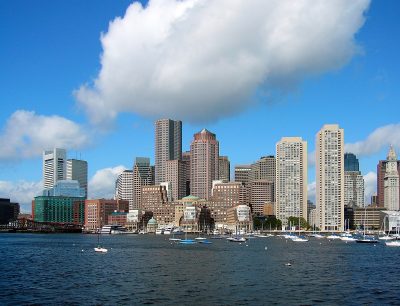A new ranking places Boston at No. 20 on Glassdoor’s list of “25 Best Cities for Jobs in 2020.”
The anonymous job review website released the list last week with rankings based on three criteria: hiring opportunity, cost of living and job satisfaction.

Boston neared the top of the list at No. 3 in the nation for hiring opportunity and No. 4 for job satisfaction, with an average Glassdoor rating of 3.6 out of 5. Meanwhile, the city barely entered the top 25 in cost of living, ranking No. 23.
Lynn Sanders, deputy director of the Mayor’s Office of Workforce Development, said the City recognizes cost of living as a major challenge, and it’s part of why the office is tasked with connecting the city’s residents to quality career pathway jobs.
“We usually are looking at jobs that pay more than the city of Boston’s living wage,” Sanders said. “Currently, it’s $15.31 an hour and it’s adjusted annually based on the consumer price index for inflation.”
The office’s main function is to distribute federal, state and municipal funding. It apportions about $14 million per year to around 100 community-based organizations providing job training or adult basic education, as well as English language development.
Also part of the Office of Workforce Development is the Office of Financial Empowerment, Sanders said, which connects people with free one-on-one financial coaching to meet the demands of high costs of living.
“Boston does have a wide variety of resources,” Sanders said. “And I think one of the challenges is a lot of people are not aware and don’t know how to access them. So that’s something our office is always really working really hard on.”
Sue Marble Cuthbert is the director of development at Project Hope, a local agency that provides services aiming to lift families in Boston out of poverty. Cuthbert said Boston currently has a low unemployment rate, but those who are unemployed face significant barriers to obtaining jobs that pay a living wage.
“Market rates for apartments are very high,” Cuthbert said. “So families are struggling with that. They’re struggling with the need to have quality child care that’s affordable so that they can go to work.”
Cuthbert said expensive housing, a significant contributor to high costs of living in the city, causes a domino effect that trickles into other areas of residents’ lives.
“I would be curious to find out distances from place of work to homes,” Cuthbert said. “And it’s not because people here are choosing to live outside of Boston and then work their job here in Boston. It’s because they can’t find apartments that they can afford here in Boston.”
Chi Chen, 32, of North End said he does notice daily life is more expensive to maintain in Boston than even other international tourist hubs.
“Before I came to Boston, I lived in Paris and the cost is much lower than Boston,” Chen said. “The salary was lower, but the cost was also much cheaper.”
Sooyeon Cho, 29, of Allston said he came to Boston from South Korea to seek more job opportunities related to his profession.
“Life and work balance is great here and there are so many research institutes nearby here,” Cho said. “That makes Boston actually a very good area for research. Environmental factors such as the Charles River are making Boston a better city for living as well.”
Anthony Luiso, 20, of Brighton said he has no complaints about current employment and living conditions in the city.
“If you find other areas like more down south, generally the cost of living is lower, but they might not have as many public services offered to the people,” Luiso said. “A lot of opportunities for people to get new jobs, public transportation and a lot of businesses close draw people into Boston.”


















































































































